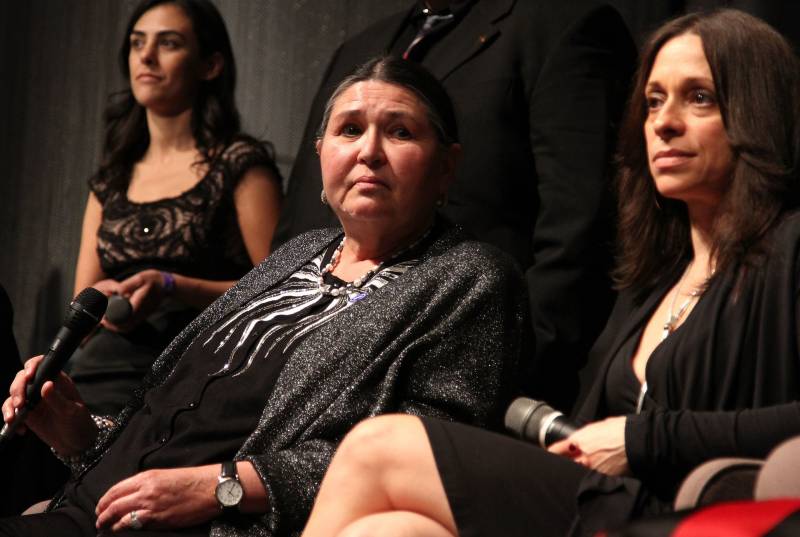When we used to go into restaurants or whatever and I used to go hand in hand with my white grandparents, people always looked at us funny.
And I could tell, you know intuitively, that something wasn’t right.
When I grew older, I went on a car trip to the south with my mother, who is white. And then I found out exactly what was up when I went to use the bathroom. There was a police officer with a billy club who was looking directly at me. And there was a white bathroom and a black bathroom. The white officer looked at me and went with the billy club, pounding the billy club in his fist.
And I thought out of my best interest to go to the black bathroom.
My mother, however, went to the white bathroom.
And I can’t tell you how much I cried and cried after that experience.
And after I had several of those experiences, I knew how blatant racism was — open, alive and well.
After refusing that award for Marlon, I went back to school to get a degree in holistic health and nutrition with a minor in Native American medicine.
I did a lot of consulting work, because medicine people were going into the hospital to treat and pray for their American Indian patients. And much of this was misunderstood by the doctors and the staff. So we needed a group of us to go in and to educate everyone from the CEO down to the janitor about what Native American medicine was all about.
We have been oppressed so much from dominant society that we have internalized that oppression. For example, saying, “You’re not Indian enough. You weren’t born on the reservation and I was.” And “Oh! You’re only half Indian, I’m a full blood. So I’m more Indian than you’re Indian.”
That’s internalized oppression.
The more that Native American Indian people like myself speak out, the more understanding that there becomes. The truth has got to win out above all the lies that have been told about us by the dominant society.
We’re all Indian. Of one blood, one mind and one heart.
And, eventually, I did grow into my feet. Now I wear a size 11 narrow. And when I go to the shoe store, I just say, “I’ve got room for everybody in my shoes.”
This week’s California Report Magazine uncovers stories of resilience as part of a collaboration with the ACLU of Northern California called “Gold Chains: The Hidden History of Slavery in California.”

